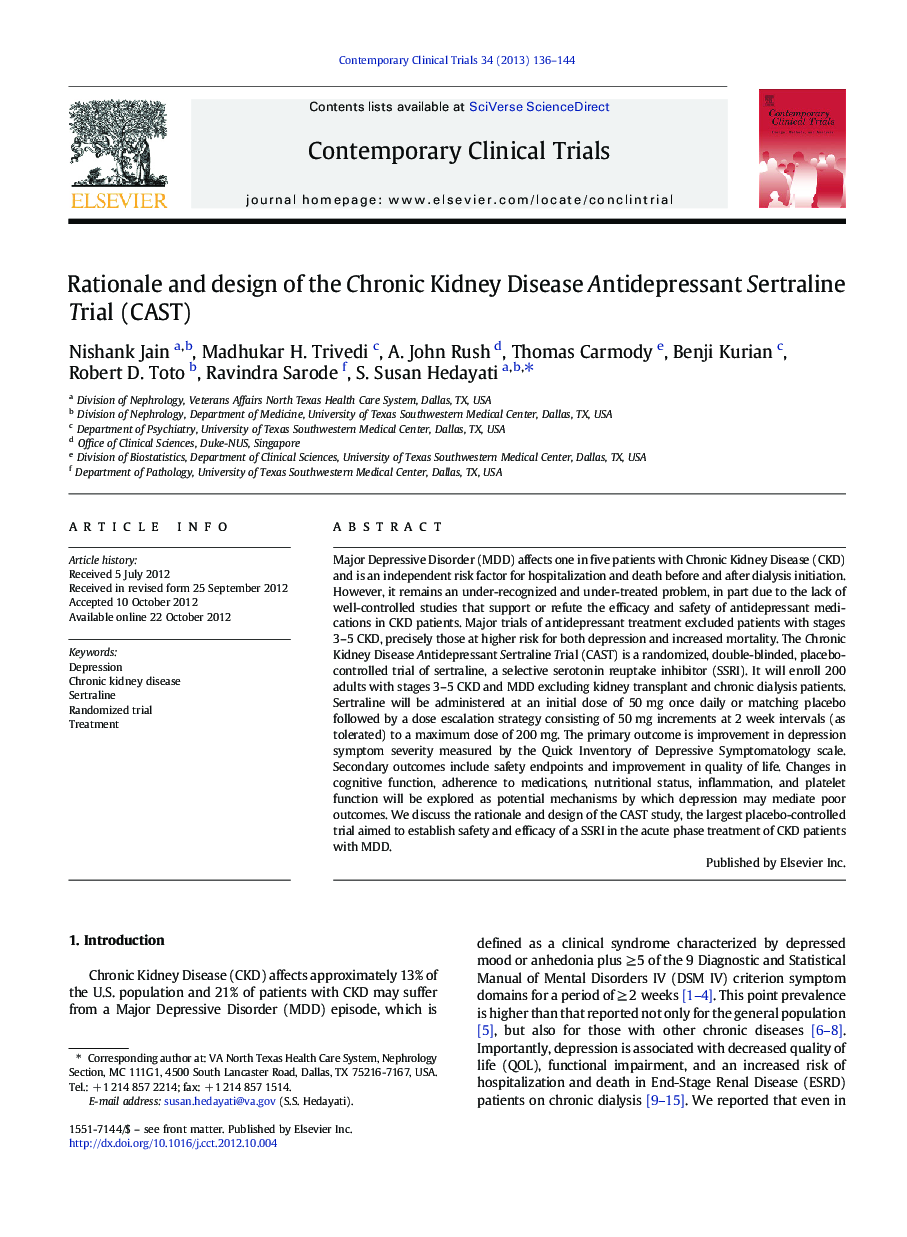| Article ID | Journal | Published Year | Pages | File Type |
|---|---|---|---|---|
| 3462714 | Contemporary Clinical Trials | 2013 | 9 Pages |
Major Depressive Disorder (MDD) affects one in five patients with Chronic Kidney Disease (CKD) and is an independent risk factor for hospitalization and death before and after dialysis initiation. However, it remains an under-recognized and under-treated problem, in part due to the lack of well-controlled studies that support or refute the efficacy and safety of antidepressant medications in CKD patients. Major trials of antidepressant treatment excluded patients with stages 3–5 CKD, precisely those at higher risk for both depression and increased mortality. The Chronic Kidney Disease Antidepressant Sertraline Trial (CAST) is a randomized, double-blinded, placebo-controlled trial of sertraline, a selective serotonin reuptake inhibitor (SSRI). It will enroll 200 adults with stages 3–5 CKD and MDD excluding kidney transplant and chronic dialysis patients. Sertraline will be administered at an initial dose of 50 mg once daily or matching placebo followed by a dose escalation strategy consisting of 50 mg increments at 2 week intervals (as tolerated) to a maximum dose of 200 mg. The primary outcome is improvement in depression symptom severity measured by the Quick Inventory of Depressive Symptomatology scale. Secondary outcomes include safety endpoints and improvement in quality of life. Changes in cognitive function, adherence to medications, nutritional status, inflammation, and platelet function will be explored as potential mechanisms by which depression may mediate poor outcomes. We discuss the rationale and design of the CAST study, the largest placebo-controlled trial aimed to establish safety and efficacy of a SSRI in the acute phase treatment of CKD patients with MDD.
